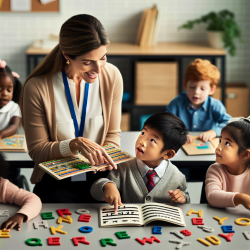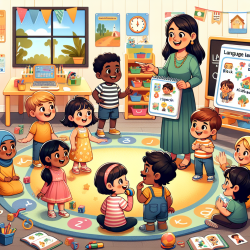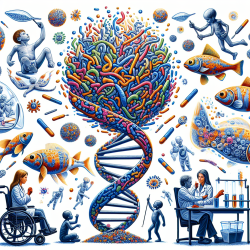Emergent literacy forms the foundation for a child's future reading and writing skills. However, visually impaired children often face unique challenges in developing these skills due to limited exposure to written communication. The research article "Emergent Literacy in Visually Impaired Children: Assessment of Oral Language Skills, Letter Knowledge, and Print Awareness" sheds light on these challenges and provides insights that can significantly benefit practitioners working with visually impaired children.
The study conducted assessments on oral language skills, letter knowledge, and print awareness among blind or profoundly visually impaired children and compared the results with sighted children. Here are the key takeaways and recommendations for practitioners:
Key Findings
- Visually impaired children showed no significant disturbances in developing oral language skills predictive of written skills.
- Specific challenges were noted in the development of print awareness among visually impaired children.
- Early intervention is crucial to address these challenges effectively.
Recommendations for Practitioners
Based on the study's findings, here are some actionable steps practitioners can take to enhance literacy outcomes for visually impaired children:
1. Early and Explicit Instruction
Introduce braille and other tactile reading materials early. Ensure that children understand the connection between oral language and written text. This can be achieved through activities that link sounds to braille letters and words.
2. Enhancing Print Awareness
Increase the presence of braille in the child's environment. Label objects, create braille storybooks, and involve children in daily activities that require reading braille. This helps them understand the practical uses of written language.
3. Parental Involvement
Encourage parents to engage in shared reading activities with their children using braille books. Educate them on the importance of discussing print and its functions in everyday life, thereby reinforcing the child's learning.
4. Phonological Awareness Activities
Incorporate activities that strengthen phonological awareness, such as rhyming games, syllable counting, and sound matching. These activities are foundational for developing reading skills.
5. Tailored Assessments
Utilize assessment tools adapted for visually impaired children to monitor progress and identify areas needing additional support. Regular assessments help in tailoring interventions to meet each child's specific needs.
Encouraging Further Research
While this study provides valuable insights, ongoing research is essential to continue improving educational strategies for visually impaired children. Practitioners are encouraged to stay informed about the latest research and contribute to the field by sharing their experiences and findings.
By implementing these strategies, practitioners can make a significant difference in the literacy development of visually impaired children, ensuring they have the skills needed for academic success and beyond.
To read the original research paper, please follow this link: Emergent Literacy in Visually Impaired Children: Assessment of Oral Language Skills, Letter Knowledge, and Print Awareness.










